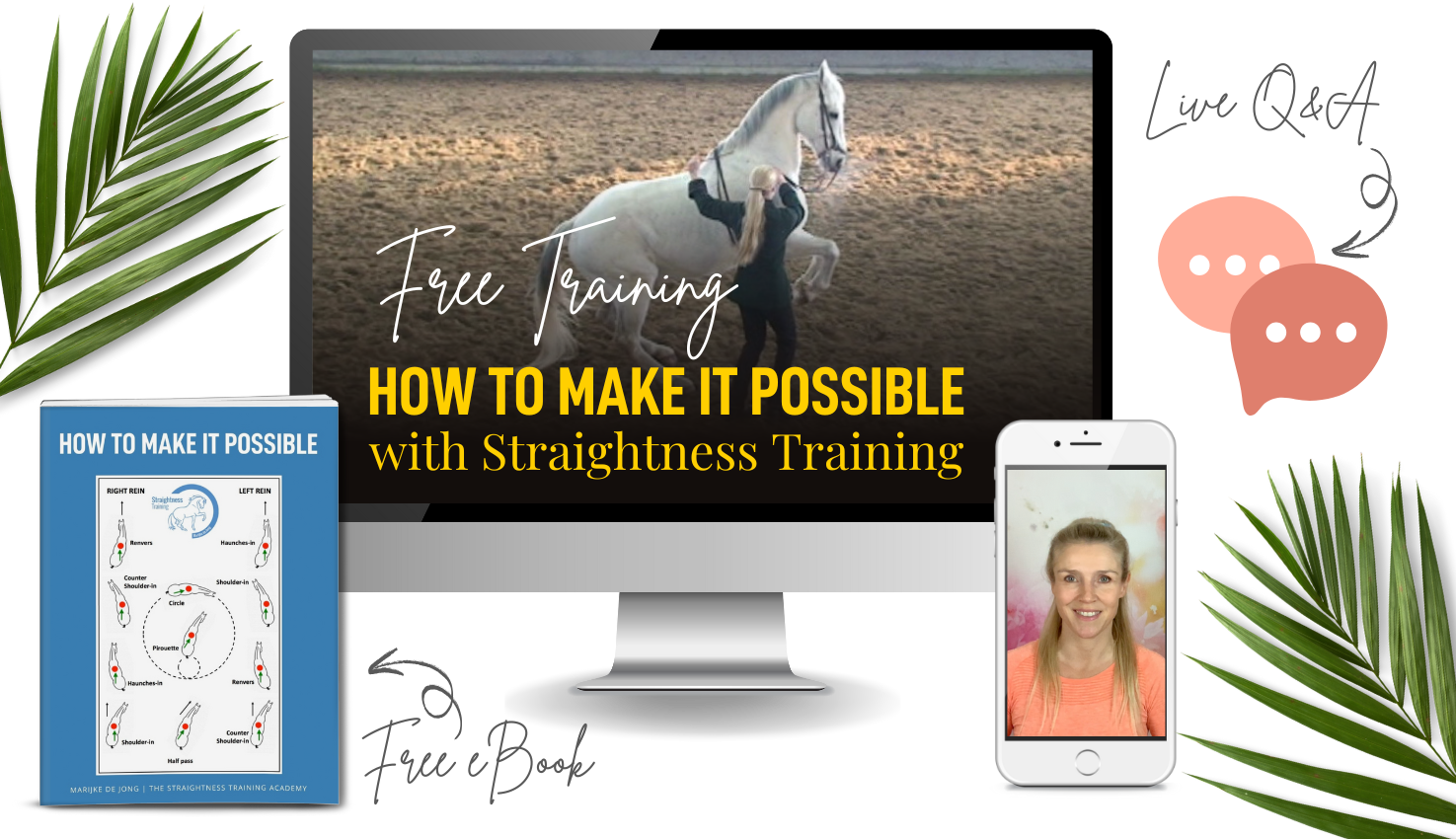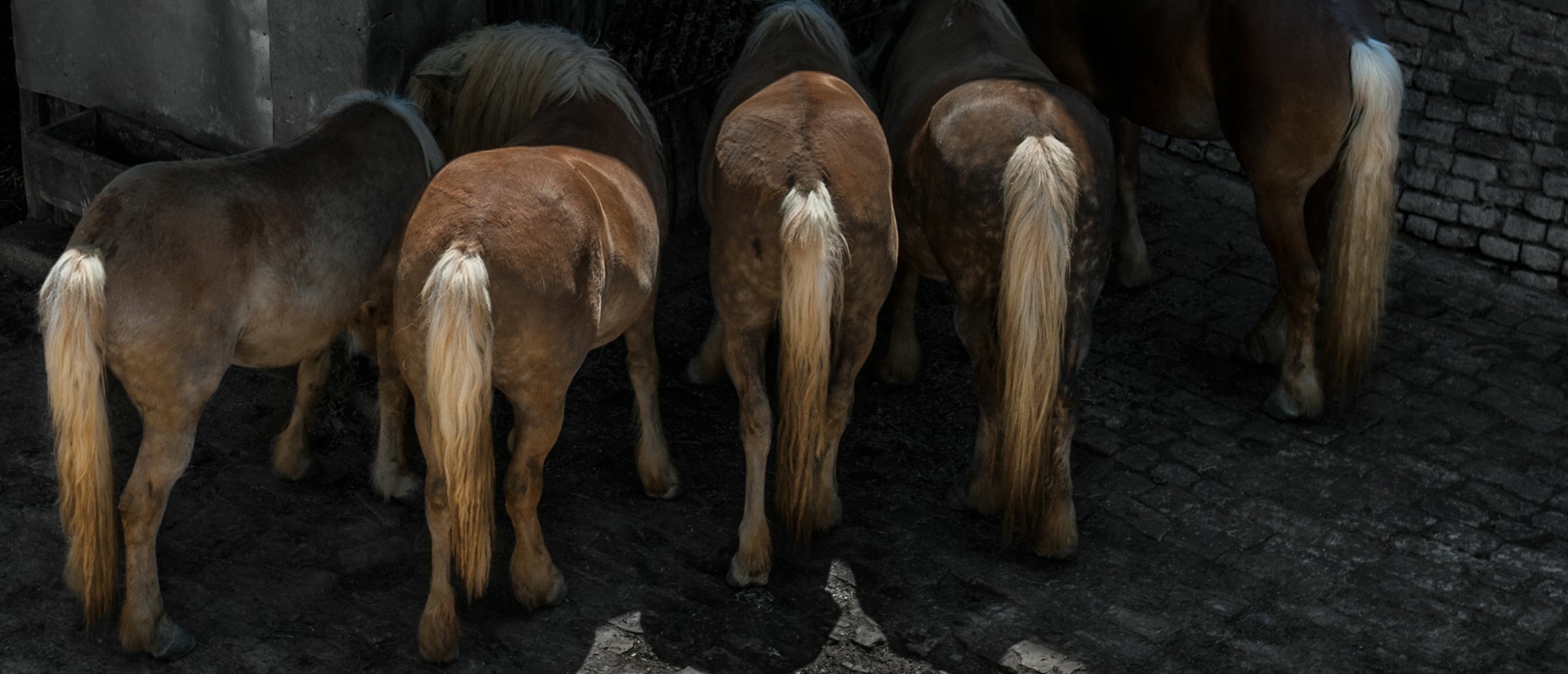
The influence of rules
Riders have different beliefs, for example about using a particular tool (whip/bit/spur), or a special technique or method, or about wearing a helmet:
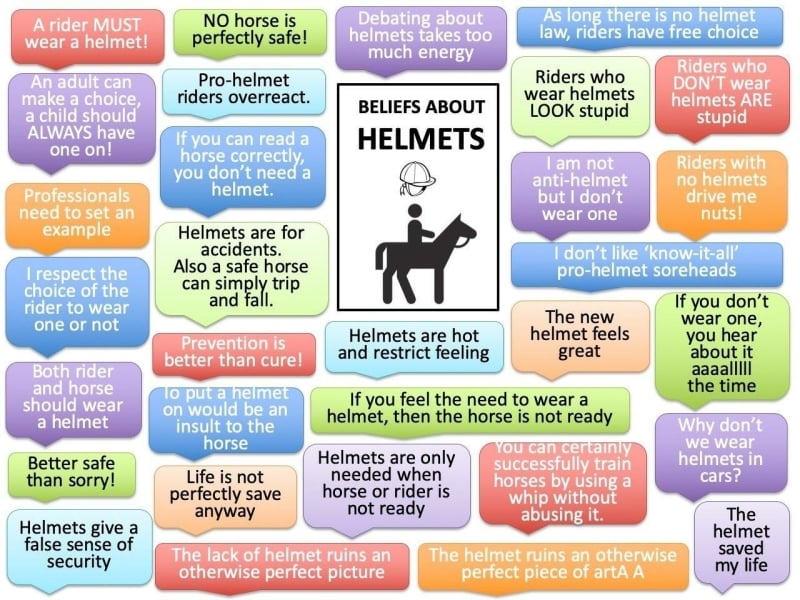
To begin with: This is NOT an article about “yes / no / good / bad / right / wrong” and it is NOT an article to start a discussion about it. This article is meant for a better understanding of the beliefs and rules of riders and the influence of rules on our emotions, behavior and communication.
Beliefs & Rules
Riders have beliefs and some of them are very strong and intense, especially if the have a ‘blue’ level of conciousness.
Very strong and intense beliefs are for example:
- “A rider must always wear a helmet.”
- “A rider should always have a free choice to wear a helmet or not.”
- “I could never wear spurs.”
- “A rider should only use spurs, like a fly touches the skin of a horse.”
- “Using a whip is always wrong“.
- “The only good way to use a whip is as an extension of your arm and your energy.”
- “Riding without a bit is the right way”.
- “Riding without a bit is the wrong way”.
- “Using pressure on a horse is bad and unnatural”
- “Using pressure is good and natural”.
- “Method X is a bad method, you should never use it.”
- “Method X is good method, every rider should always use it.”
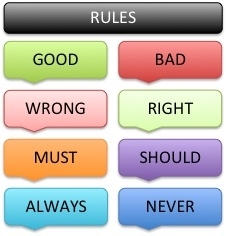
These strong beliefs are not only a belief, they are rules.
Rules are our beliefs about:
• what is good and what is bad, what is right and what is wrong
• what we should do and what we must do
• what others should do and what others must do
• what has to happen in order for us to feel good
Click HERE for the 8 Levels of Consciousness >>
Judge & Jury
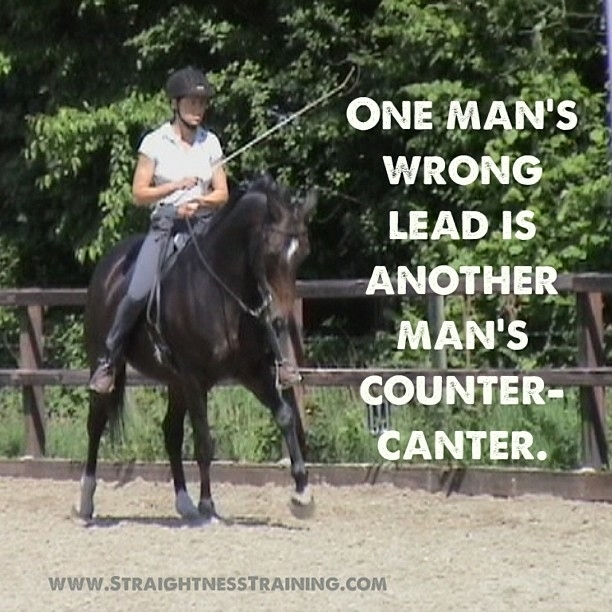
We all have a set of different rules and our personal rules are our ‘judge & jury’. We judge what is happening around us through our set of rules and our rules trigger our emotions every moment of the day:
- “If someone is not wearing a helmet, that is bad and I feel very disappointed.”
- “If a child is not wearing a helmet, that’s really bad and I become angry.”
- “Riders with no helmet, it’s wrong, it drive me nuts!”
- “If a professional is setting the example, that’s good and I feel reassured.”
- “If a rider is not wearing a helmet, it’s okay, because nobody is violating the law, so I feel okay.”
- “If one doesn’t wear a helmet, that’s fine by me, but you hear about it aaaalllll the time and that annoys me.”
- “If somebody tells me to wear a helmet, I hate this pedantic unsolicited advice, it’s wrong.“
Now of course, you could have the belief that you are not following your personal rules, but the rules of your insurance company, but then it’s your rule that riders must follow the rules of the insurance companies.
However, since time immemorial people break rules and even the law and there will also people who believe in karma; they believe that if your karma is that you need a head injury in this life, that karma will find it’s way, whether you follow the rules of the insurance company or not.
Bottom line is, that riders often judge other riders (and horses) through their set of rules. It’s their rule that says: “When they follow my rule, then I will be happy”. But if their expectations are not met, they might feel unhappy or frustrated, because somebody violate their rules.
Rules & Emotions
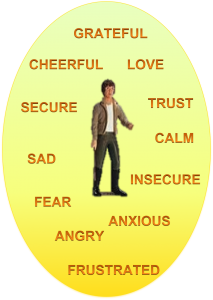
As you could read above, our set of rules triggers our emotions and causes us to feel good / happy / disappointed / frustrated / angry / … . If our ‘feeling good’ is dependent upon something or someone we cannot control, then we will experience uncomfortable feelings. For example:
We cannot control all riders in the world. Despite the rule “A rider MUST wear a helmet”, a rider somewhere in the world will violate the rule by not wearing a helmet and each day photos of riders without helmets will emerge on the internet. So the rule is impossible to meet and that makes it very easy to feel angry/upset/frustrated and difficult to feel good.
Remember:
If you ever feel upset with a rider, it’s your rules that are upsetting you, not his/her behavior.
That’s why one rider feels perfectly fine with you riding without a helmet while another rider feels disappointed. It’s just a matter of level of consciousness.
Rules trigger emotions trigger judging
Riders have different rules about helmets, methods, tools, equipment, techniques, etc.. And many riders think that their set of rules are the right rules, but remember it’s just that rider A and rider B have different rules.
It’s their rule is not met – and therefore feel some kind of uncomfortable emotion – rider’s often start to blame or to judge.
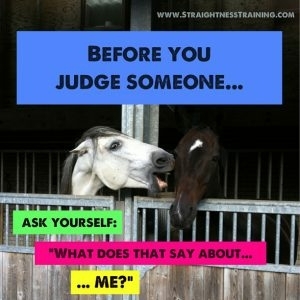
Before you would like to judge someone, ask yourself:
- What rules do I have?
- What emotions do I feel?
- What does that say about… ME?
- Where does the need to be critical come from?
- Can I control the other rider?
- If I cannot control other rider’s rules, opinion and behavior, if I cannot change it, why would I spend any time, focus, or emotion on a rider I can’t control?
“When you judge another, you do not define them, you define yourself.” ― Wayne W. Dyer
Judging or self-improvement?
Any time that we spend judging someone else is time that we could be using for self-improvement. Every moment we waste on complaining can be well spent improving our own riding. If we have only to worry about ‘being a better you’ and not about everything else that is out of control, that saves us a lot of uncomfortable feelings.
“Give so much time to the improvement of yourself that you don’t have time to criticize others” ― Jim Rohn
Of course if you like to discuss, there are a lot of platforms on the internet where you can discuss about everything. But everywhere where you would like to offer your (unsolicited) advice, rules, opinions and judgment, remember:
“All blame is a waste of time. No matter how much fault you find with another, and regardless of how much you blame him, it will not change you. The only thing blame does is to keep the focus off you when you are looking for external reasons to explain your unhappiness or frustration.” – Wayne Dyer
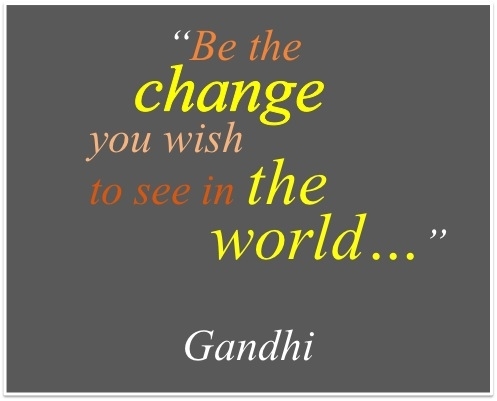
Of course it’s okay to stand up for your rules. A strong and intense rule could be “It’s wrong to abuse horses.” But if you really think a horse is being actually abused, stop talking, stop judging, stop being emotional, and actually do something. Call an animal protection organization, hold a petition, get to work. Actions speak louder then words.
If you want to influence other riders, don’t talk, work hard, create an even better you and be the change you want to see. Lead by example, instead of convincing other riders.
Being judged
“Criticism is something we can avoid easily by saying nothing, doing nothing, and being nothing” – Aristotle
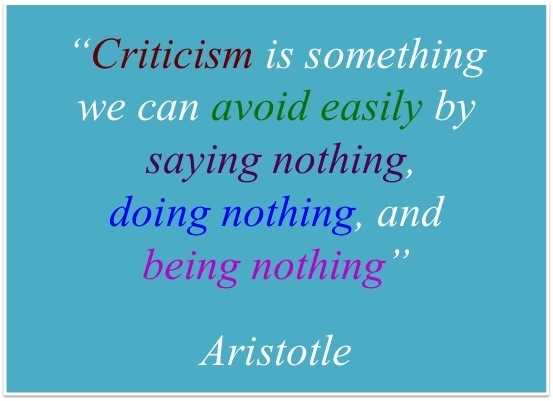
Of course there is honest feedback from another rider or instructor, meant to help you and meant to improve you and your horse. But if someone criticizes you because of his set of rules remember:
No matter how good you are to other riders, there will always be riders judging you, because of their set of rules.
Therefore, if someone is blaming you: don’t take it personally. If you understand them, it is easy to let go:
If another rider feels upset with you, or a photo/video of you, it’s his rules that are upsetting him, not your behavior.
Remember, everyone thinks that their rules are the right rules, and a lot of riders offer their right rules and (unkind) opinions without being asked, especially those riders with very intense rules. They always need to prove or show their rules and have the need to control people and situations. And their criticism often says something about THEM: about their personal issues, their own need to be critical / to get attention / to boost their ego.
“Life is like Twitter – Follow. Unfollow. Block.” – Paolo Coelho
Riders with strong and intense rules do not always listen to understand, but mostly listen to reply. To explain to the critics is often a bit like trying to straighten the tail of the dog. As soon as you succeed the tail raises again. Therefore we should not engage with negative criticism.
“Don’t wast your times with explanations. People only want to hear what they want to hear.” – Paolo Coelho
Choose empowering beliefs & rules
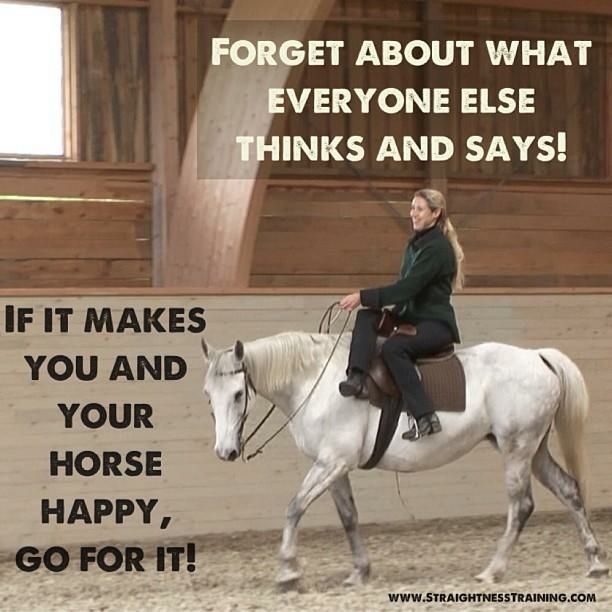
If we can’t control other riders (to wear for example a helmet or to ride the same way as we do), if we can’t change another rider, the only thing we can change is our own attitude and we can change our beliefs and rules and choose empowering ones.
We can leave our ‘blue’ level of consciousness and move up to a level where we are:
- open and curious to new ideas and perspectives every day.
- informed instead of just opinionated.
- forget about what everyone else thinks and says. If it makes you and your horse happy, go for it!
- be the change we want to see!

